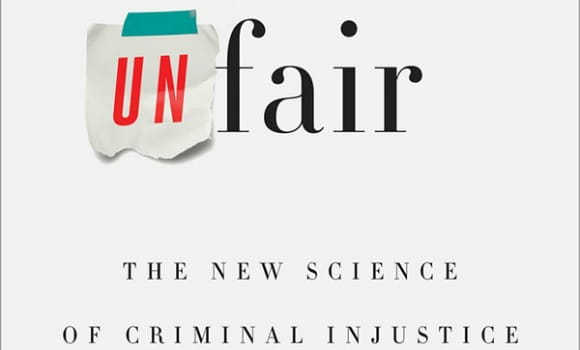Drexel Law Prof Publishes Book on “Unfair” Criminal Justice System

- Drexel Environmental Collaboratory Releases Cross-Sector Findings on Severe Weather Recovery Challenges
- Drexel’s Hydration Stations Cut Plastic Waste and Costs
- Drexel Launches the Manuel Stamatakis Center for Alternative Investments at the LeBow College of Business
- Drexel Receives $1.4 Million Grant to Establish Hub for Literacy Reform

Our criminal justice system is broken but not for the reasons we think, according to Adam Benforado, an associate professor of law at Drexel University’s Kline School of Law.
In his new book “Unfair: The New Science of Criminal Injustice,” Benforado exposes the powerful psychological forces that undermine the criminal justice system and affect us all. He also offers a fundamentally different path to reform: embracing evidence-based law.
Released on June 16 by Crown, “Unfair” reveals that our existing legal structures and tools fail us because they are based on an incorrect understanding of human behavior. This includes flawed assumptions about how police officers assess risk, why criminals commit crimes, what deceit looks like, how eyewitness memories work, what drives us to punish, and how best to deter repeat offenders.
“Until we address these hidden biases head-on, the inequality we see now will only widen,” said Benforado. “New insights from psychology have revolutionized other fields—from sports to medicine to economics. It’s time to use this knowledge to transform our system of criminal justice.”
Benforado uses each chapter of the book to focus on a different “character” in the legal system: the victim, the eyewitness, the suspect, the detective, the judge, the juror, and the prisoner. After describing the conventional stories about how those people make decisions, Benforado explains what the latest scientific findings say about the true mental processes of those players.
“The road to a more perfect system is accepting a model of ourselves that is less perfect,” Benforado wrote in an op-ed published in The New York Times.
Excerpts from the book have appeared in The Atlantic and Scientific American.
A graduate of Yale College and Harvard Law School, Benforado served as a federal appellate law clerk and an attorney at Jenner & Block.
In This Article
Contact
Drexel News is produced by
University Marketing and Communications.
